President Kagame wins third term as Kenyans wait for election results
On Saturday, Rwanda’s electoral officials announced the results of the August 4 elections. President Paul Kagame was re-elected securing nearly 99 percent of votes. The chairman of Rwanda’s electoral commission shared that voter turnout was around 98.5 percent, amounting to nearly 7 million people. President Kagame’s opponents Philippe Mpayimana and Frank Habineza each earned 0.73 and 0.48 percent of votes, respectively. The Rwandan governance board deemed the elections free, fair, and transparent. Regional observers from the Common Market for Eastern and Southern Africa (COMESA) praised the professional efforts put in place by electoral commission officials to ensure a smooth election. A 2015 constitutional referendum allows President Kagame to potentially remain president until 2034.
Meanwhile, Kenyan voters headed to the polls for a presidential election on Tuesday, August 8. President Uhuru Kenyatta ran against opposition leader and former vice president Raila Odinga. Preliminary results announced on Tuesday evening showed that president Kenyatta was re-elected with 54.28 percent of the votes while Raila Odinga received 44.83 percent of the votes. These results have yet to be confirmed by the country’s electoral commission. On Thursday, Raila Odinga claimed extensive fraud and “hacked” results in the elections and accused election officials of wrongfully handing the victory to President Kenyatta. According to Al-Jazeera, despite increased security efforts, this claim led to some post-electoral violence which left 5 people dead, two of whom were shot in the capital city of Nairobi.
At the local level, six women made history, becoming the first women elected governors and senators in Kenya. Kenya presently has women senators, however they were nominated to their positions as the country’s constitution requires that 16 women be nominated to the senate. Margaret Kamar of Uasin Gishu county, Susan Kihika of Nakuru county, and Fatuma Dullo of Isiolo county will be the first three female senators by the electoral process. Charity Ngilu of Kitui, Anne Waiguru of Kiriyanga county, and Joyce Laboso of Bomet county were elected as Kenya’s first female governors.
In other political news:
Mauritania abolished the upper house of its parliament, the senate, in a referendum that is likely to help the current president, Mohamed Ould Abdel Aziz, increase his grip on power.
President Jacob Zuma of South Africa narrowly survived another no-confidence vote this week in a secret ballot with 198 MPs voting for him to stay and 177 against.
AGOA forum reinforces US-Africa trade relations while addressing recent disputes with the EAC
This week, Togo hosted the 2017 African Growth and Opportunity Act (AGOA) Forum in its capital of Lomé from August 8-10 with the theme, “The United States and Africa: Partnering for Prosperity through Trade.” This year’s forum, in addition to an exploration of how all parties can maximize the benefits of the legislation, also emphasizes how women, civil society, and the private sector in particular can contribute to trade promotion.
The forum offered a unique opportunity to gauge the Trump administration’s stance towards Africa as the continent has largely been left off the U.S. foreign policy agenda. Representatives from regional African bodies, 38 sub-Saharan countries, the African Women’s Entrepreneurship Program (AWEP), and a number of U.S. agencies (including several cabinet representatives, the U.S. Trade and Development Agency (USTDA), the National Security Council (NSC), the Millennium Challenge Corporation (MCC), the Overseas Private Investment Corporation (OPIC), and the U.S. Export-Import Bank, among others) were in attendance.
AGOA, the cornerstone of U.S-Africa trade relations, was renewed in 2015. The act gives qualifying sub-Saharan African countries duty-free access to the U.S. market for about 6,500 products, including textiles, steel, various chemicals, and numerous agricultural products. Though participants were keen to praise the emphasis of trade over aid in the U.S.-Africa relationship, they also noted that AGOA has yet to meet its full potential. The forum comes at a time of heightening tension over AGOA, as the East African Community has recently banned the import of second-hand clothes in order to support its growing textile industry. The U.S. considers the ban to be a violation of the AGOA agreement, according to acting USTR for Africa, Constance Hamilton. The USTR has stated that it will be performing an out-of-cycle review on Rwanda, Uganda, and Tanzania due to the ban, which it claims hurts American jobs, though the move by Hamilton has drawn criticism from several U.S.-Africa trade experts.
For a full look at this year’s forum program, see here.
Ethiopia lifts state of emergency after 10 months while US approves additional food
On Friday, August 4, Ethiopia’s parliament voted to lift the state of emergency imposed in October 2016. The restrictions under the state of emergency included curfews, social media blocks, and restrictions on travel for diplomats outside the capital, Addis Ababa. Some of these restrictions were eased in March when the state of emergency was extended. The unrest leading up to the state of emergency started two years ago in Oromia Regional State in opposition to a proposed master plan for the expansion of Addis Ababa. According to Addis Fortune, a local newspaper, the state of emergency has had a significant impact on tourism with a drop-off in tourist arrivals. According to Reuters, more than 29,000 individuals were arrested during the state of emergency across Ethiopia, about 8,000 of whom are currently facing court proceedings. The same Reuters article noted that a government report released in April stated that 669 people had been killed in the violence before the state of emergency.
Meanwhile, on the ongoing drought in parts of Ethiopia, the United States has pledged an additional $137 million in food aid this week to tackle food shortages. This assistance package is expected to provide enough food to feed 3 million affected people. As part of the announcement, acting director of food for peace at USAID, Matt Nims, emphasized that “It is not a famine but it is rising up to the levels of getting close to famine, [and] that is why we want to act now so that we’re not into that stage.”
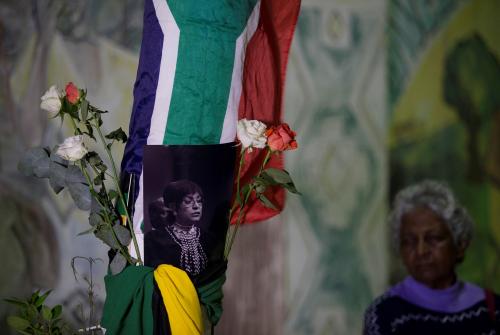
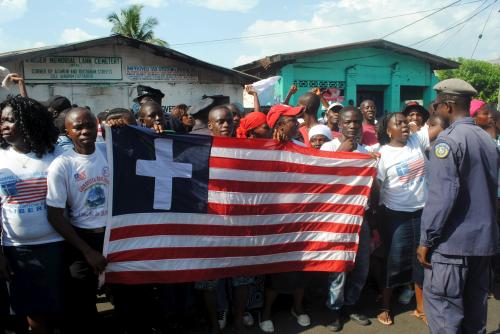
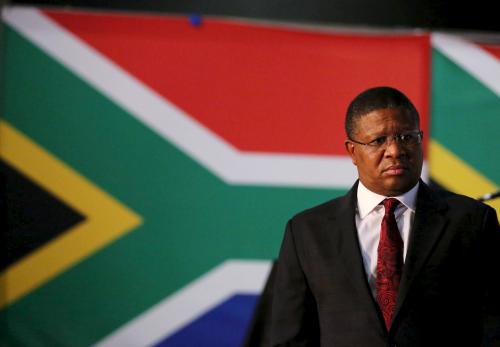
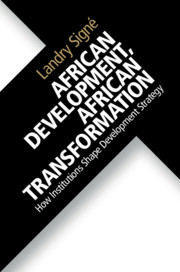
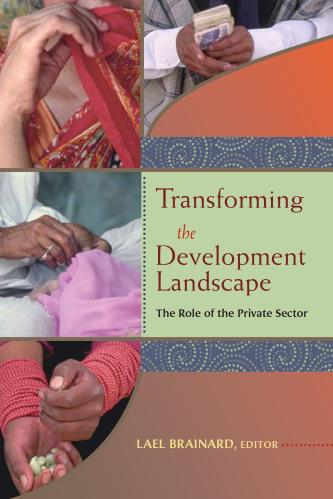
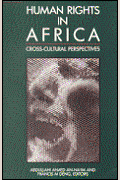

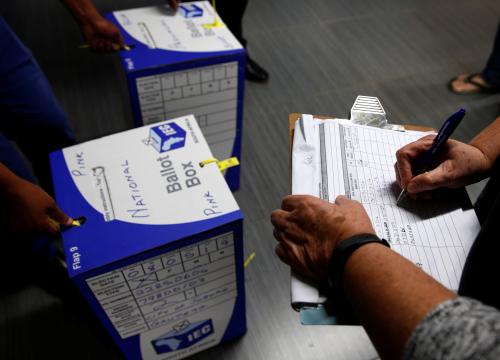
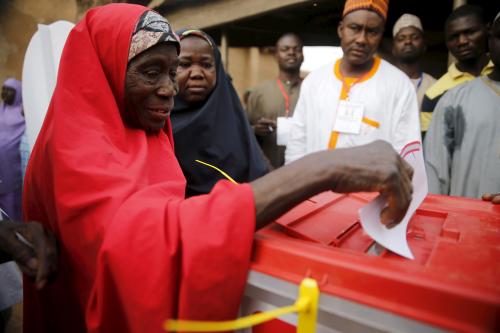
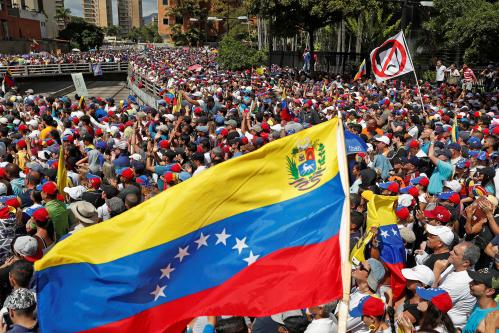
Commentary
Africa in the news: Elections in Rwanda and Kenya, AGOA Forum, and Ethiopia’s dropped state of emergency
August 11, 2017